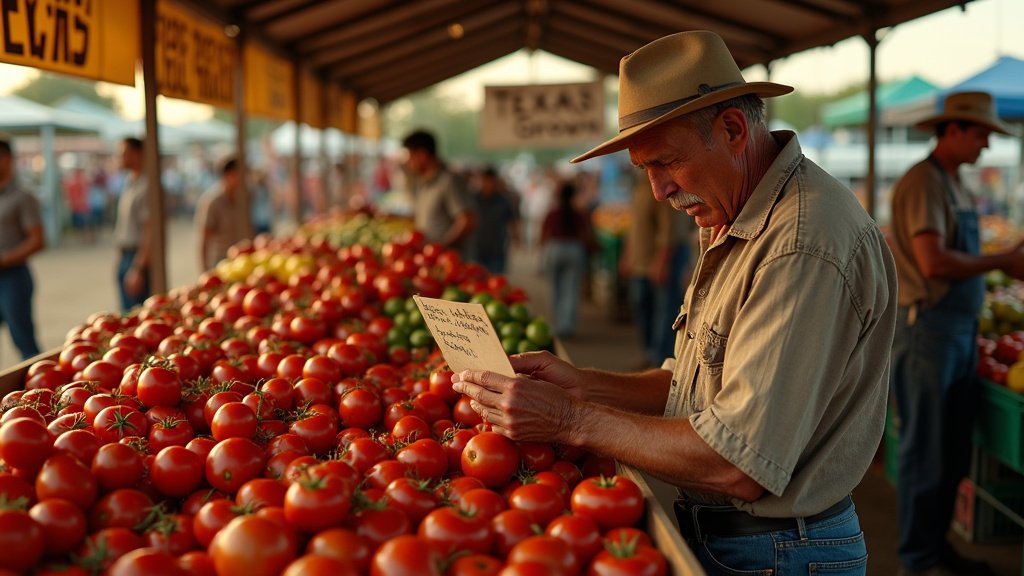Texas Braces for Tomato Price Hikes
Texas consumers and the agricultural industry are preparing for potential price increases for tomatoes following the United States’ decision to withdraw from a key trade agreement. The move is anticipated to trigger higher tariffs on imported goods, a development that could significantly impact the availability and cost of tomatoes throughout the state.
The Impact of Tariffs
The withdrawal from the trade agreement is projected to lead to an increase in tariffs imposed on foreign-produced tomatoes, primarily impacting the supply chain dynamics. These tariffs act as a tax on imported goods, making them more expensive for distributors and, ultimately, consumers. The details of the specific tariffs and the precise timeline for their implementation are still being finalized. However, the anticipated rise in costs has already prompted concerns among Texas businesses.
President’s Stance and its Effects
The President’s recent tax on tomatoes is expected to negatively affect the market. This policy, coupled with the trade deal’s termination, is seen as a double blow for the tomato industry in Texas. Industry analysts predict that the combination of these factors will likely result in higher prices for consumers and potential challenges for tomato farmers and distributors.
Economic Concerns
The impending rise in tomato prices raises several economic concerns for Texas. The cost of food affects household budgets, potentially impacting consumer spending in other areas. Moreover, it could put additional stress on restaurants and food service businesses that rely on a steady supply of affordable tomatoes. This may in turn affect business operations and profitability. The economic impact extends beyond just consumer costs, affecting various segments of the food supply chain, including transportation, storage, and distribution.
Supply Chain Disruptions
The anticipated trade changes are likely to disrupt the existing tomato supply chains that Texas relies on. Texas currently sources tomatoes from various countries involved in the trade agreement. Alterations to these supply channels, whether through shifts in sourcing or interruptions, can cause volatility in the market. It is important to note that any shifts or disruptions will have ripple effects across the state, affecting how and where tomatoes are purchased and sold. The precise impact of the changes will depend on the ability of businesses to adapt.
Farmers’ Perspective
Texas tomato farmers are expressing concerns regarding the possible consequences of the trade agreement’s termination. They are apprehensive about facing increased competition from imported products that may become cheaper due to the implementation of different trade policies. Additionally, they worry about their capacity to adjust to the new pricing scenarios and preserve their profit margins. The effect of increased costs will vary depending on the specific farm, its size, and its supply channels.
Consumer Outlook
Consumers in Texas are preparing for potentially higher prices for tomatoes. Grocery stores and local markets are working to find ways to mitigate price hikes. Consumers will likely notice the effect in their weekly grocery bills and in the pricing of meals out. It is crucial for consumers to be aware of these probable developments and to budget accordingly.
Expert Analysis
Industry experts are closely monitoring the situation, analyzing the possible effects of the trade agreement’s cancellation. They are examining trade data and market trends to better comprehend the potential ramifications. Their forecasts aim to assist businesses in planning and adjusting to the changing market conditions. A detailed assessment of the likely outcomes is currently being undertaken.
Long-Term Implications
The long-term consequences of this trade decision extend beyond the immediate price increases. They could affect the competitiveness of the Texas tomato industry and the nature of food production and supply. The state’s reaction will be closely examined, and adjustments might be needed to ensure the sustainability of the local agricultural sector. The situation is expected to evolve over time.
Government Response
The state government is likely to respond to the changes by evaluating various options, including the development of new support programs for Texas farmers. It is anticipated that there will be a close collaboration with federal agencies and relevant stakeholders to minimize any potential economic harm. This active participation and proactive engagement will be vital for mitigating the adverse effects and facilitating a smooth transition.






